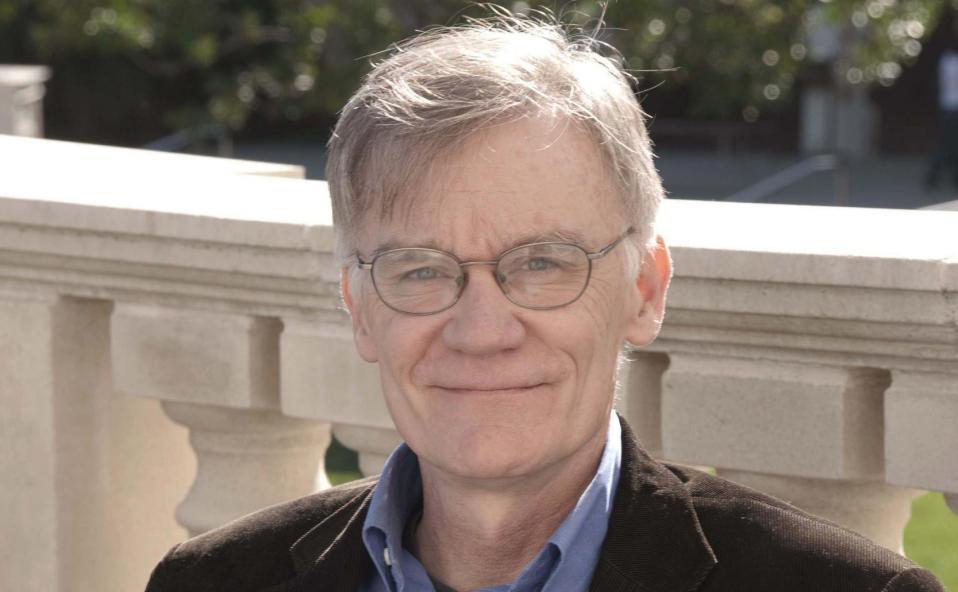 On Saturday, November 10, at 1:30 p.m., in the Chesapeake Bay Maritime Museum’s Van Lennep Auditorium, David W. Blight, Professor of History at Yale, will discuss his much-anticipated new book, “Frederick Douglass: Prophet of Freedom.” Adam Gopnik, in The New Yorker, called Blight’s book “Extraordinary … a great American biography.” The Wall Street Journal, called it “a book that speaks to our own time as well as Douglass’s …. A brilliant book.” Drew Gilpin Faust, former president of Harvard and author of “This Republic of Suffering: Death and the American Civil War,” has described Blight’s book as “a work not only of stunning scholarship but also of literary artistry. David Blight’s—and Frederick Douglass’s—achievements have immeasurably enriched our understanding of slavery, abolitionism, the Civil War, and Reconstruction.”
On Saturday, November 10, at 1:30 p.m., in the Chesapeake Bay Maritime Museum’s Van Lennep Auditorium, David W. Blight, Professor of History at Yale, will discuss his much-anticipated new book, “Frederick Douglass: Prophet of Freedom.” Adam Gopnik, in The New Yorker, called Blight’s book “Extraordinary … a great American biography.” The Wall Street Journal, called it “a book that speaks to our own time as well as Douglass’s …. A brilliant book.” Drew Gilpin Faust, former president of Harvard and author of “This Republic of Suffering: Death and the American Civil War,” has described Blight’s book as “a work not only of stunning scholarship but also of literary artistry. David Blight’s—and Frederick Douglass’s—achievements have immeasurably enriched our understanding of slavery, abolitionism, the Civil War, and Reconstruction.”
“Frederick Douglass: Prophet of Freedom” sheds new light on Douglass thanks, in part, to a trove of papers and letters found in a private collection. Blight writes that the collection, owned by Walter O. Evans of Savannah, Georgia, “Makes possible many new insights into the final third of Douglass’s life. The younger Douglass—the heroic escaped slave and emerging abolitionist—is better known, in part because of the author’s masterful first two autobiographies. The older Douglass, from Reconstruction to the end of his life in 1895, has never been so accessible or rendered so fascinating and complicated as in the Evans collection.”
David Blight is the Class of 1954 Professor of American History and Director of the Gilder Lehrman Center for the Study of Slavery, Resistance, and Abolition at Yale University. He is the author or editor of a dozen books, including “American Oracle: The Civil War in the Civil Rights Era” and “Race and Reunion: The Civil War in American Memory, as well as annotated editions of Douglass’s first two autobiographies. Dr. Blight, who has worked on Douglass much of his professional life, has been awarded the Bancroft Prize, the Abraham Lincoln Prize, and the Frederick Douglass Prize, among others. He was a featured historian in Ken Burns’ acclaimed PBS documentary, “The Civil War.”
Dr. Blight’s lecture is made possible by a partnership between the Chesapeake Bay Maritime Museum, the Frederick Douglass Honor Society, and the Talbot County Free Library. Though this lecture is free and open to the public, seating is limited, so free tickets are required to attend the lecture. Tickets may be picked up at the Chesapeake Bay Maritime Museum, the Talbot County Free Library, or by request from members of the Frederick Douglass Honor Society. For more information, please call the Talbot County Free Library at 410-822-1626, or visit www.tcfl.org.



John H Muller says
I have read David Blight’s long anticipated book closely. I wrote a review that has been attached, along with other reviews of his book, to many online points of sale.
However laudatory reviews may be, Prof. Blight has seemingly ignored the real history of Frederick Douglass on the Eastern Shore, which includes Douglass speaking at multiple Shore county courthouses.
I’ve recently presented on “The Lost History of Frederick Douglass in Cambridge,” which you kindly posted on your news site. The presentation was covered on the front page of the “Star Democrat” late last month.
My critique of Blight’s work is done from the position of an author on Douglass — Blight cites my book 8 times — who is continuing research into the lost and overlooked history.
Blight does not know the Eastern Shore despite having the opportunity of a personal tour by the impeccable Dickson J. Preston. Blight has had a good two to three decades to break new scholarship of Douglass on the Shore.
He has not done so. Blight repeats what has already been written, and in doing so makes small yet woeful errors. For example, in Blight’s book he refers to “Cambridge” in Dorchester County as “Charleston.”
Popular history is often incorrect and incomplete history. That is what the work of Blight truly is: incorrect and incomplete.
John Muller
Mr. Muller is the author of”Frederick Douglass in Washington, D.C.: The Lion of Anacostia” (The History Press, 2012)